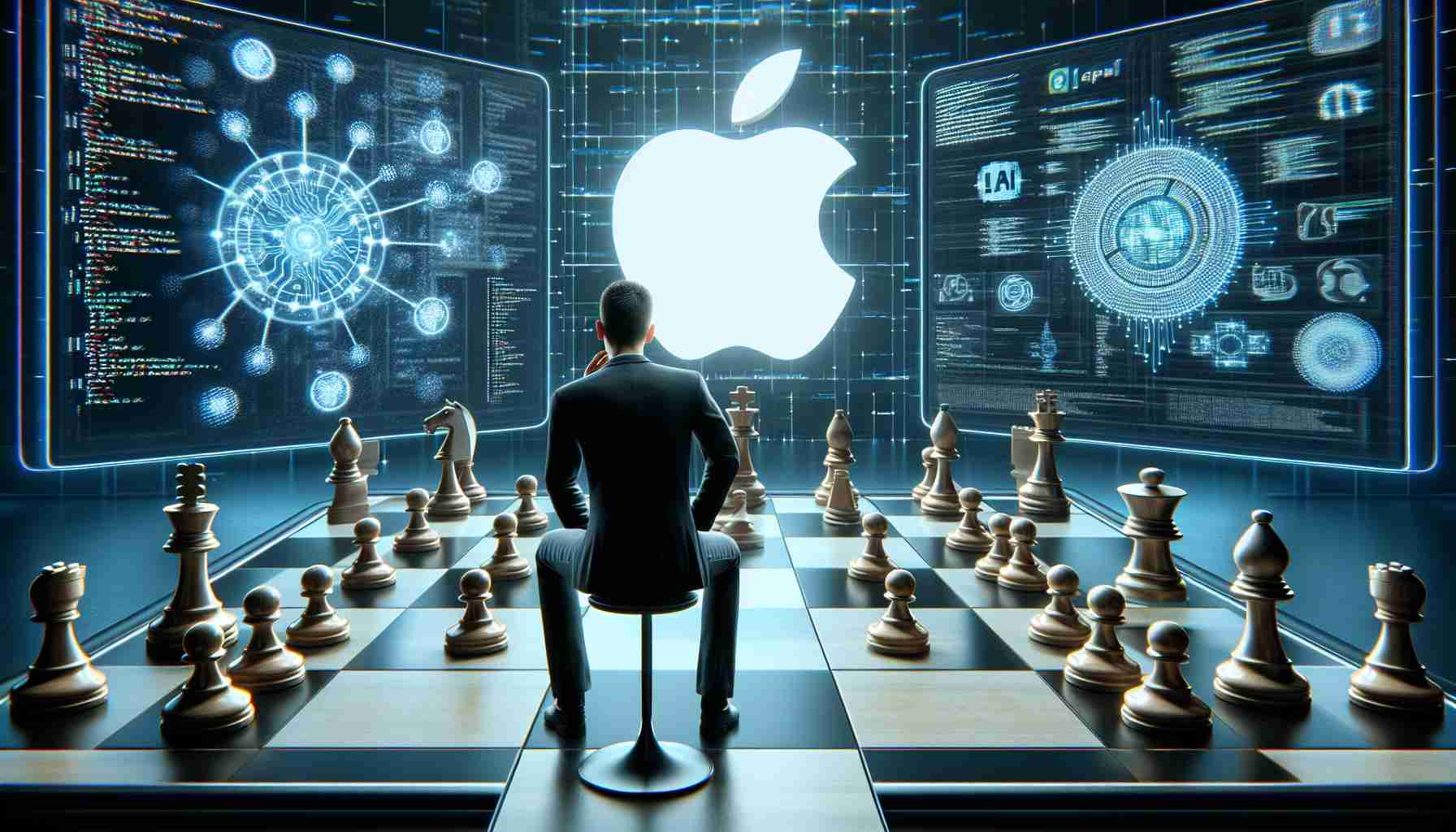Apple, a company renowned for its innovative prowess, is taking a calculated gamble by holding back while a storm of artificial intelligence developments sweeps across Silicon Valley. The tech behemoth is known for its philosophy of prioritizing quality over being the pioneer, a strategy that proved to be golden with the launch of the iPhone.
Within the bustling corridors of the tech community, whispers and speculations revolve around Apple’s conspicuous absence in the heated AI competition. Experts have observed how rivals plunge headfirst into the AI frenzy, investing heavily and rolling out cutting-edge products.
Apple appears to be poised, watching from the sidelines, perhaps brewing its own version of perfection in artificial intelligence. This deliberate pace is characteristic of the tech titan, which has repeatedly demonstrated a knack for entering a market with a product that sets the new standard.
This approach raises intriguing questions about the risks and rewards involved. Apple’s staggering market value is, in part, a testament to its winning recipes in the past. Still, whether this “be the best, not the first” mantra will translate into another revolutionary product in the AI domain remains a subject of much debate among industry observers.
Regardless of the outcome, Apple’s strategic patience in the domain of artificial intelligence will likely be a defining move, potentially reshaping the tech landscape once again.
Advantages of Apple’s Strategic Hesitation in the AI Race
One advantage of Apple’s hesitation is that it allows the company to observe and learn from the successes and failures of competitors who may rush in too early. This can lead to a more polished and customer-friendly product upon release. Additionally, by not being the first, Apple avoids the pitfalls of setting an early standard that may later become outdated or non-compliant with emerging norms and regulations regarding AI.
Apple’s brand is associated with refined and user-friendly technology, so taking the time to ensure AI integration upholds this reputation is critical. The company has a history of entering markets later with products like the iPod, iPhone, and iPad that redefine expectations and user experience, asserting its dominance despite initial absence.
Key Challenges or Controversies
The decision to move slowly in the AI space may present various challenges. There’s a risk that Apple could fall too far behind competitors who are rapidly advancing AI technologies and integrating them into products and services. This challenge is compounded by the pace at which AI is evolving and the increasing role it plays in various technologies.
In addition, there are ethical considerations and controversies surrounding AI, such as privacy, surveillance, potential biases in algorithms, and the impact of AI on employment. Apple’s entry into this field will likely be scrutinized for how it handles these issues, given its emphasis on user privacy and security.
Disadvantages
The disadvantages of Apple’s hesitation might include the loss of potential first-mover advantages, such as establishing a strong market presence or shaping the direction of AI technology. Furthermore, tech-savvy customers who are eager to embrace the latest AI features may turn to other brands that are more visibly pushing the envelope in AI.
Another disadvantage could be the perception that Apple is falling behind in innovation. As rivals showcase their advancements, Apple’s slower pace could be interpreted as a lack of expertise or commitment to AI by consumers and investors.
Related Links
For readers interested in broader context on the topic, the following links can provide additional information:
– AI technological developments: IBM Watson
– Ethical AI considerations: Microsoft AI
– Apple’s current AI applications and products: Apple
In conclusion, Apple’s strategic hesitation in the AI race is a significant business decision that reflects the company’s philosophy and approach to innovation. By focusing on quality and the user experience, Apple may be aiming to create a product that is superior to those of competitors. With its past successes as a guide, the tech community eagerly anticipates what Apple may have in store for the future of AI.
